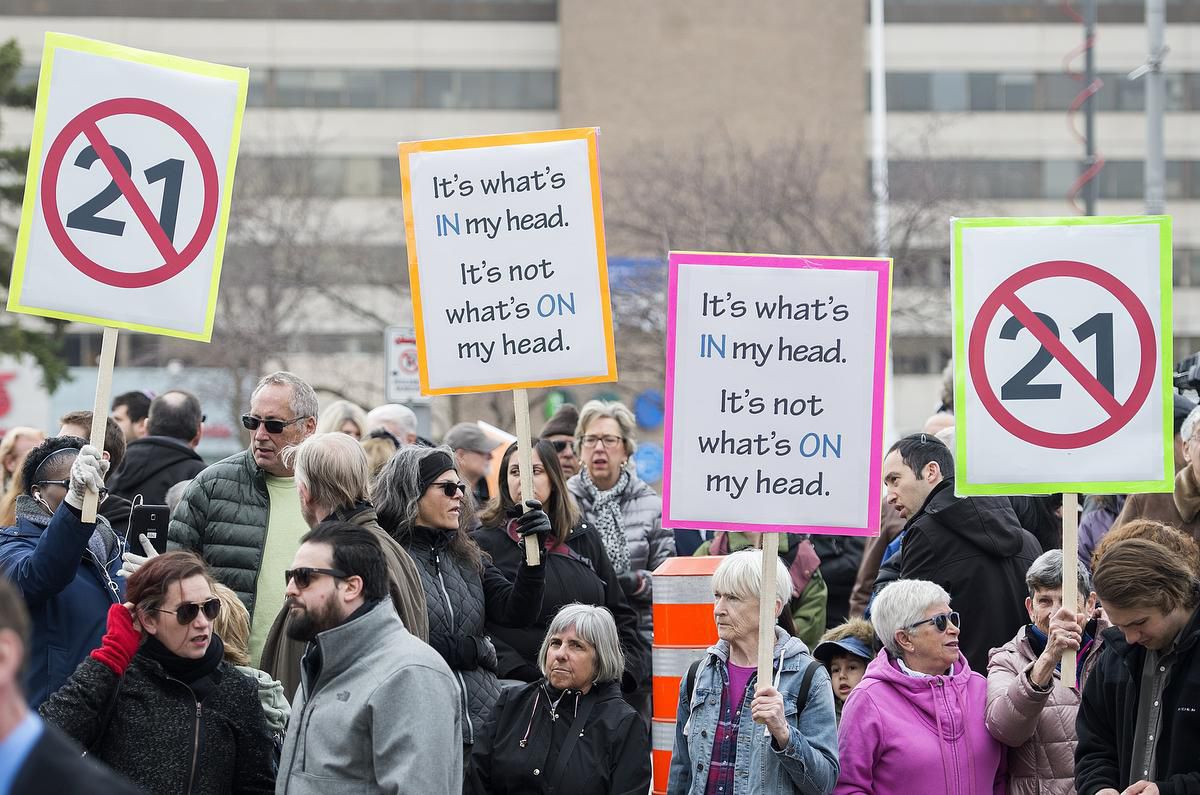The 2019 federal election was my first experience voting. When I was a child, voting seemed like a distant, adult future; growing up outside of Canada also made that future seem more inaccessible, because my participation in Canadian political issues was always online, thousands of kilometres away. But finally, this fall, that seemingly distant time arrived.
However, when I found myself at the ballot box on Monday morning, the decision was a lot more challenging than I expected. I found myself going back-and-forth, from strategic choices to bold candidates, from the Liberal Party, to the New Democratic Party (NDP), to the Green Party. I started with prioritizing Middle Eastern foreign policy with my family’s safety in mind, to looking at my own safety as a racialized person in Canada, and as a woman. Every choice I made, there was a policy or issue I felt I was neglecting, so I would start over.
Despite spending 20 years building my anticipation, the whole election cycle was emotionally draining. In particular, the rhetoric surrounding racism, xenophobia, and discrimination were sore spots for me.
Jagmeet Singh, the leader of the NDP, is the first racialized person to lead a major federal party in Canada; he also wears a turban. In Quebec, Bill 21 was passed in June, legislation that prohibits ‘public servants in positions of authority’ from wearing religious symbols like Singh’s turban. For Quebecers like myself grappling with Bill 21 and the subsequent increase in hate crimes, Singh became a beacon of hope during the election. While he was campaigning in Montreal, a man told Singh to “cut off” his turban to “look like a Canadian” in the middle of the Atwater Market. As someone who has been a victim of hate crimes in the past, having a figure like Singh demonstrate immense strength throughout his campaign was empowering, but the backlash against him shows how much further we have to go in order to adequately address hate in this country.
Additionally, the Bloc Québécois saw major gains adding 32 seats: 1.4 million Quebecers voted for the party on Monday. Coupled with their support of Bill 21, the Bloc’s rising popularity shows how far Quebecers specifically still have to go to address hate in the province.
This was also an election featuring an alt-right candidate, with Maxime Bernier leading the People’s Party of Canada. Although Bernier did not even win his own seat, the damage was already done; he had his chance to spew his hateful racist and anti-immigrant throughout his campaign, at the debate, and on Twitter. Seeing posters of his candidates go up outside my window and seeing thousands of people across Canada actually vote for this party is evidence of the rising far-right sentiments across the country, even in Montreal.
I remember when Prime Minister Justin Trudeau’s old blackface and brownface pictures were leaked; despite clear evidence that Trudeau participated in a centuries-old racist caricature, Liberal candidates first response was to defend him, instead of apologizing to Black and Brown communities affected by his insensitivity. Of course, Trudeau’s blackface and brownface is only a symptom of the larger issue of systemic racism in Canada, but the response was the most disorienting part for me. From a government that has paraded diversity, the first step to allyship is accepting blame and reflecting on one’s own mistakes; although Trudeau apologized, his party did not deliver.
Unfortunately, even with the release of the final report on Missing and Murdered Indigenous Women and Girls in June, or the recent ruling by the Canadian Human Rights Tribunal to pay reparations to First Nations children traumatized by the child welfare system, Indigenous issues were not a major platform or point in the election. Scandals like Trudeau’s brownface and blackface exist in a larger conversation of systemic racism, discrimination, and settler-colonialism in Canada; therefore, Indigenous peoples should have been placed at the forefront of platforms.
Despite the lower points of this election, continuing to support local social justice movements is necessary. At McGill, students should continue supporting student organizations like the Black Students’ Network, the Muslim Students Association, and the Indigenous Student Alliance. Students should also demonstrate proper allyship for Black, Indigenous, and other people of colour by showing up to demonstrations on-and-off campus.
This election period is over, and with the newly-elected Liberal minority government, new challenges arise in tackling systemic racism in the country. For Black, Indigenous, and people of colour, elections have historically always been a disheartening time. Regardless of the outcome, and even though not much has changed, we can still learn from the events of this cycle.









